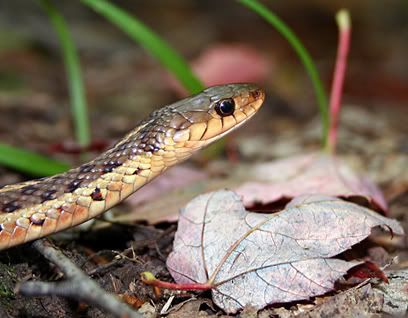


There is no real consensus on the classification of species of Thamnophis and disagreement among taxonomists and sources, such as field guides, over whether two types of snakes are separate species or subspecies of the same species is common.

They are also closely related to the snakes of the genus Nerodia, and some species have been moved back and forth between genera.

Garter snakes, like all snakes, are meat eaters. Their diet consists of almost any creature that they are capable of overpowering: slugs, earthworms, leeches, lizards, amphibians, birds, fish, toads and rodents. When living near the water, they will eat other aquatic animals.

Garter snakes are widespread throughout North America. The common garter snake (Thamnophis sirtalis), is the only species of snake to be found in Alaska, and is one of the northernmost species of snake in the world, possibly second only to the Crossed Viper, Vipera berus.

The genus is so far ranging due to its unparticular diet and adaptability to different biomes and landforms, with varying proximity to water.
However, in the western part of North America, these snakes are more water loving than in the eastern portion. Northern populations hibernate in larger groups than southern ones.Garter snakes have complex systems of pheromonal communication. They can find other snakes by following their pheromone-scented trails. Male and female skin pheromones are so different as to be immediately distinguishable. However, sometimes male garter snakes produce both male and female pheromones. During mating season, this fact fools other males into attempting to mate with these "she-males".